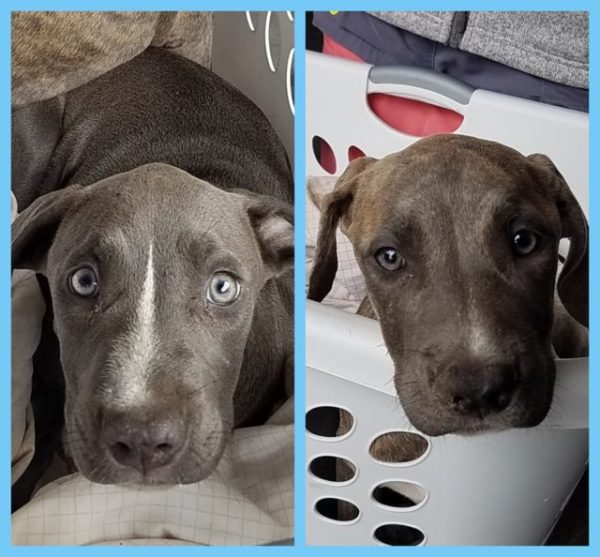Indianapolis Animal Care Services (IACS) sent out a grave warning yesterday to dog lovers everywhere. In the past week alone, the shelter has seen dozens of dogs at their intake doors infected with canine parvovirus. Canine parvovirus is completely preventable with a routine vaccination. These preventative measures are extremely successful at protecting our pups from dangerous diseases.
IACS said on Facebook,
Canine parvovirus, or parvo, is a highly contagious, life-threatening disease and it’s only going to continue to spread throughout our community unless pet owners heed the warnings and get their dogs vaccinated against it.
The warning included pictures of two adorable puppies. These poor babies were surrendered by their family when they tested positive for the virus. Tragically, there was a third puppy in their care that did not survive the drive to the shelter. Someone failed to protect these puppies, and they sadly will pay for it with their lives.

Photo Indianapolis Animal Care Services Facebook
Urging People to Get Their Dog Fully Protected
The shelter warns that the virus will continue to spread, rapidly. Anyone with a dog, especially anywhere near Indianapolis, should have a conversation with their vet to ensure their pet is fully vaccinated. IACS stated,
If your dog has never had the parvo vaccine, OR if your dog had the first round of the vaccine, but never received the boosters (which are necessary for COMPLETE protection), PLEASE, PLEASE, PLEASE make an appointment with your vet to get that taken care of before it’s too late. If you’re not sure, please have a conversation with your vet to make sure your dog is protected.

Recommended Vaccine Schedule
American Animal Hospital Association’s 2006 vaccination guidelines recommend the following schedule for parvovirus vaccination:
- Puppies should receive a series with a minimum of three vaccinations between 6 and 16 weeks old, no more frequently than every three to four weeks.
- Dogs should have an additional dose one year after final puppy dose.
- Dogs should be re-vaccinated every following three years.
Parvovirus Facts
- Dogs of any age can be infected, but puppies younger than 4 months are at greatest risk.
- It’s extremely contagious and can be passed from dog-to-dog contact, human hands, toys, bedding, floors, feces…any imaginable object that has been in contact with parvo.
- The virus is very resilient and lives in heat, cold, humidity, or dryness and survives for very long periods of time.
- It affects the infected dog’s digestive tract causing lethargy, loss of appetite, vomiting, severe (often bloody) diarrhea, bloating, pain, and fever.
- Most dogs die within 48-72 hours of contracting the virus.
Free Vaccines for Those in Need
West Michigan Street Veterinary Clinic and the SOAR: Street Outreach Animal Response Initiative announced a partnership to provide 100 dogs in need with the vaccine. Initially, they’re focusing on local dogs under the age of 3 who are unvaccinated or under-vaccinated and whose families demonstrate financial need.
They’re seeking donations through Facebook to protect even more dogs and puppies. If you are able, please consider donating through the Facebook Donate link below.
Please share this article to raise awareness about the parvo vaccine schedule so more senseless deaths can be avoided.
 Toledo, United States.
Toledo, United States.